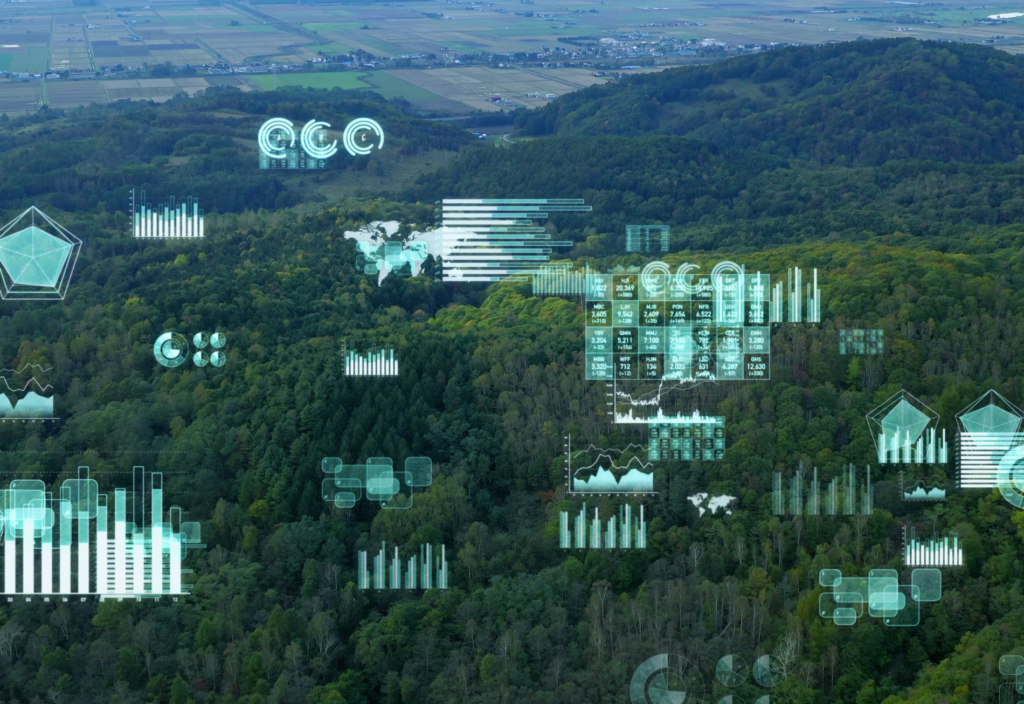The United States leads the world in number of data centers, with 5,381 data centers as of March 2024 according to Statista. To give you an idea of how large the delta is between the U.S. and the rest of the world, Germany follows in second with only 521 data centers. Therefore the responsibility largely falls on us to ensure that data center decommissioning and operating standards are sustainable. With the industry expected to grow 10% a year through 2030, it’s imperative to continuously innovate how we manage energy consumption, data security, and e-waste.
Environmental Impact of Data
There are a few main factors to consider when calculating the footprint of data centers. The first is the large amount of energy consumed to power servers, storage systems and networking equipment. Collectively, these data center buildings account for about 2% of electricity used in the United States.
All of this power leads to the issue of heat generated by servers, often managed by water-based cooling systems. In Google’s 2023 Environmental Report, they cited that most of the 5.2 billion gallons of water the company used was for their data centers – a 20% increase since the year before. Water consumption is a growing concern, especially in regions where the local supply is already under strain.
As an industry, we are constantly innovating to increase the efficiency of data centers. At the rate that technology is improving, it can be both cost-effective and sustainable to replace data center equipment every few years. That leads us to the question – what do we do with decommissioned assets?

Minimizing Waste, Maximizing Value
The end of a device’s life cycle is just as important as the beginning. And when you make room for updated data center equipment, it doesn’t mean your old servers and racks lose all of their
value. Sometimes equipment can be redeployed and remarketed, a savvy way to recover value while minimizing environmental impact.
Other servers and hard drives may need to be destroyed depending on the company or government data security requirements. Even these materials can be recycled to extract precious metals like gold and silver, or commonly used copper, steel, and aluminum.
No matter which route your end-of-life devices take, it’s important to work with a certified data center decommissioner and IT reseller. The potential damage to your business, your clients, and the environment is not worth the risk.
Data Security Standards
R2v3 certification is the industry standard for data security, workplace safety, and environmental regulations for any facility that processes electronics for recycling or resale. Special software is required to erase data from a device so it is completely unreadable and unrecoverable (unfortunately simply dragging a file to the “trash” folder won’t work to protect your business’s sensitive data).
Hard drives that contain extremely sensitive information such as healthcare records or government information will require physical destruction as well, in accordance with HIPAA and NIST standards. A responsible service provider will supply a certificate of destruction to prove that the data from your devices has been securely and irreversibly destroyed. R2v3 compliant providers will also take detailed records of the sanitization process and testing, all completed in a secure facility with alarms and CCTV systems.
While some of these standards may not be required by law, the threat of data security breaches is a critical reason to handle your data with the utmost of care.
Certified Data Center Solutions at METech
With over 55 years in the business, METech is one of the pioneers in data center decommissioning and IT resale. Partners trust us to protect their valuable data and assets, while supporting your ESG goals. As an R2v3 certified provider, we offer the highest data security standards. Click here to contact us about your project.

